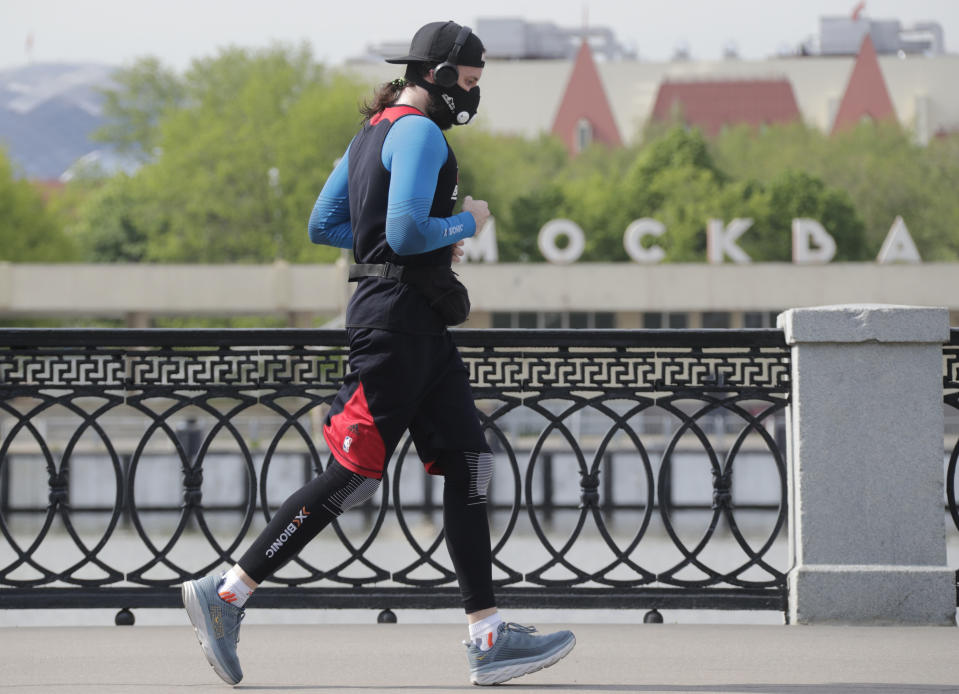Coronavirus: Small study finds four in five cases have no symptoms

A small study found four out of five coronavirus cases showed no symptoms.
Britons who develop the tell-tale fever, cough, or loss of taste or smell have been told to self-isolate entirely at home for seven days, while other members of their household must do the same for two weeks.
Concerns have been raised that asymptomatic patients who unknowingly carry the infection are free to go out for “very limited purposes”, like shopping for essentials, putting others at risk of “silent” symptomless transmission.
The prevalence of asymptomatic patients has been up for debate.
To learn more, scientists from Macquirie University Hospital in Australia looked at 128 people who tested positive for the coronavirus on a cruise ship, which set off before the World Health Organization (WHO) declared the outbreak a global health emergency.
They found just 24 (18%) of the virus-positive passengers had coronavirus symptoms.
Early research suggests the infection is mild in four out of five cases, however, it can trigger a respiratory disease called COVID-19.

On 3 March, the WHO’s director-general Dr Tedros Adhanom Ghebreyesus said: “Evidence from China is only 1% of reported cases do not have symptoms and most of those cases develop symptoms within two days”.
Scientists from the University of Hong Kong later claimed 12.1% of patients do not develop a fever.
To learn more, the Australian team looked at the passengers of a cruise ship that departed from Ushuaia in Argentina for a planned 21-day voyage of the Antarctic in mid-March.
Passengers who had been in countries with high infection rates were not allowed to board.
Temperature readings were taken before they were permitted on the ship, which had hand sanitiser points located throughout.
Despite their best efforts, the first case of fever was reported on day eight of the holiday.
This prompted extreme measures that confined passengers to their cabins, enforced the delivery of meals and ensured crew wore personal protective equipment when in contact with ill holidaymakers.
Seeing as Argentina had closed its borders, the ship sailed to Montevideo in Uruguay, arriving on day 13.
Eight passengers and crew required hospital care for respiratory failure; when oxygen levels fall in the blood and carbon dioxide accumulates.
On day 20, all the remaining 217 passengers and crew were swabbed for the coronavirus.
One hundred and twenty eight (59%) came back positive, the scientists wrote in the journal Thorax.
Of these, 24 (19%) had symptoms, while the remaining 108 (81%) did not.
In 10 cases, two passengers sharing the same cabin did not have the same result, which suggests a relatively high rate of false-negatives.
One passenger (0.8%) is known to have died with the coronavirus.
“It is difficult to find a reliable estimate of the number of COVID positive patients who have no symptoms,” said Professor Alan Smyth, joint editor in chief of Thorax.
“As countries progress out of lockdown, a high proportion of infected, but asymptomatic, individuals may mean that a much higher percentage of the population than expected may have been infected with COVID.”
Confusion over the proportion of asymptomatic patients is one reason why face coverings are being encouraged in confined public spaces, regardless of whether you are sneezing or coughing.
With the virus mainly spreading face to face via infected droplets, it is rational to expect those without symptoms – like coughs and sneezes – may not pass the pathogen on as readily.
Dr Andrew Freedman from the University of Cardiff found the study of “great interest”, but added “we cannot be 100% certain the high proportion of positive swab tests represents true infection rather than being due to environmental contamination on board the ship”.
“However, if this finding was replicated in other settings including the UK as a whole, it would suggest a much higher proportion of the population might already have had the infection than is currently estimated,” he said.
“We need to await the more widespread rollout of antibody testing to determine whether this is indeed the case.
“We do not yet know whether previous infection and the presence of antibodies confers long lasting immunity.
“However, a higher proportion of the population at low risk of reinfection in the short term would reduce the chance of a second wave of COVID-19 after easing of lockdown measures.”
Antibodies are virus-fighting proteins released by the immune system after it overcomes an infection to prevent it taking hold again.
What is the coronavirus?
The coronavirus is one of seven strains of a virus class that are known to infect humans.
Others cause everything from the common cold to severe acute respiratory syndrome (Sars), which killed 774 people during its 2002/3 outbreak.
Since the coronavirus outbreak was identified, more than 5.5 million cases have been confirmed worldwide, according to Johns Hopkins University.
Of these cases, over 2.2 million are known to have “recovered”.
Globally, the death toll has exceeded 346,600.
The coronavirus mainly spreads face to face via infected droplets expelled in a cough or sneeze.
There is also evidence it is transmitted in faeces and can survive on surfaces.
The coronavirus has no “set” treatment, with most patients naturally fighting off the infection.
Those requiring hospitalisation are given “supportive care”, like ventilation, while their immune system gets to work.
Officials urge people ward off infection by washing their hands regularly and maintaining social distancing.
Coronavirus: what happened today
Click here to sign up to the latest news, advice and information with our daily Catch-up newsletter
Read more about COVID-19
How to get a coronavirus test if you have symptoms
What you can and can’t do under lockdown rules
In pictures: How UK school classrooms could look in new normal
How public transport could look after lockdown
How our public spaces will change in the future
Help and advice
Read the full list of official FAQs here
10 tips from the NHS to help deal with anxiety
What to do if you think you have symptoms
How to get help if you've been furloughed



